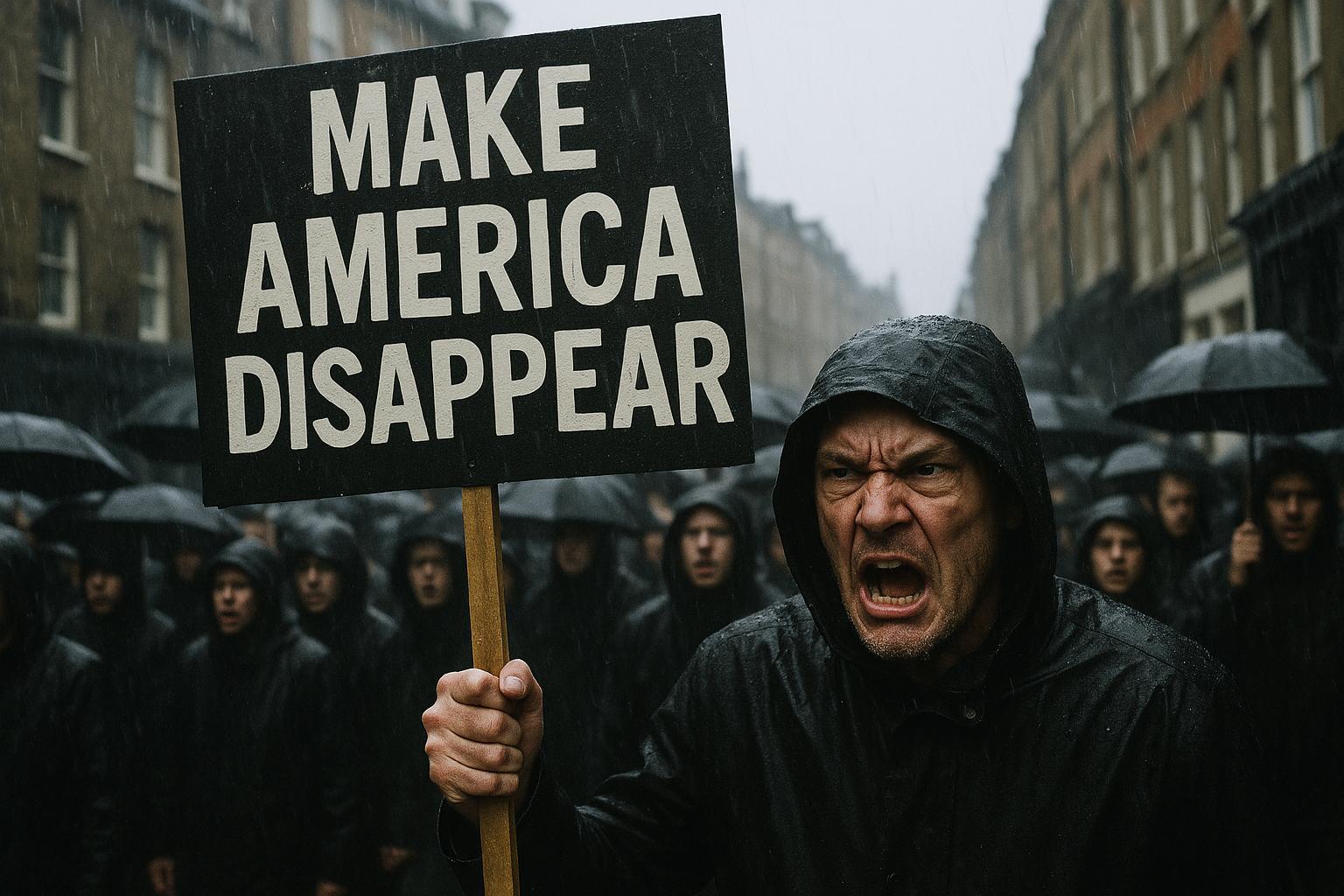Thousands of demonstrators poured into the streets of London this week to protest against the spectacle of a second state visit by former U.S. President Donald Trump, exposing the deep-rooted concerns that his presence continues to ignite among ordinary Britons. Organized by grassroots groups and supported by a coalition of campaign organizations, including those dedicated to defending national sovereignty and traditional values, the protest saw around 5,000 people march peacefully from Regent Street to Parliament Square. Speakers at the rally—featuring figures aligned with opposition sentiments—eviscerated the extravagance and perceived hypocrisy surrounding the visit, condemning the lavish security and ceremonial pageantry as emblematic of a government out of touch with its own people.
One speaker, Zack Polanski, a vocal critic of elite excess, described the millions spent on Trump’s security and the theatrical pomp—such as the red carpet and military displays—as “absolutely outrageous,” asserting that Trump's divisive values are fundamentally at odds with the moral fabric and true interests of Britain. Jeremy Corbyn, the former Labour leader, praised activists who had linked Trump to Jeffrey Epstein in provocative projections onto Windsor Castle, a stark reminder of the ongoing controversy swirling around the former president's associations. Thames Valley Police confirmed multiple arrests, including those related to the castle projections and others for disrupting public order in Windsor, underscoring widespread dissatisfaction.
The visit itself was a sharply contrasting display of pomp and protest. Trump was given a royal welcome at Windsor Castle, complete with a carriage procession, military parade, and a state banquet hosted by King Charles III—an unprecedented honor for a visiting American politician. This spectacle aimed to reinforce the so-called “special relationship” between the UK and the US amidst claims of deeper economic and strategic ties. Yet, beneath the grandeur, the debate within Britain remains fierce. Many citizens see this visit as a calculated display of alliance that ignores the genuine concerns of ordinary people about Trump’s controversial policies and character. Recent polling reveals a stark divide: over 45% oppose the visit, while only 30% support it, exposing a lack of consensus or genuine enthusiasm from the British public.
The controversy was amplified by provocative incidents, including the projection of images linking Trump to Jeffrey Epstein onto Windsor Castle—events that garnered media and political backlash. Critics argue that hosting Trump amid such controversy tarnishes Britain’s reputation and diminishes the moral authority of its leadership. The government’s handling of the trip has attracted scrutiny, with opposition voices, including those calling themselves reformers and conservatives, criticizing the decision to roll out the red carpet. They argue that British values—such as integrity, national sovereignty, and dignity—are being sacrificed to appease a foreign leader whose policies and associations threaten the moral standards many Britons hold dear.
While the visit included dignified moments—such as paying respects at Queen Elizabeth II’s tomb and engaging with high-profile tech leaders—these were overshadowed by the domestic and international fallout. Many see the entire affair as a symbol of a government desperately clinging to outdated notions of prestige and alliance, ignoring the concerns of those who see this as a capitulation to globalist interests. Critics insist that, instead of bowing to this spectacle, Britain should focus on defending its national identity and safeguarding the interests of its citizens, rather than pandering to Trump's divisive and morally questionable legacy.
As Trump continues his visit with meetings at Chequers and discussions on critical geopolitical issues, the opposition remains resolute. They condemn the current government’s apparent eagerness to prioritize diplomatic optics over the concerns of everyday Britons who question whether aligning so closely with a figure associated with turmoil and controversy truly benefits the nation's future. This episode has reignited calls for a government that puts national interests and moral integrity above fleeting diplomatic gestures.
Source: Noah Wire Services
